Visiting the Taj Mahal in Agra, India:
Visiting The Taj Mahal in Agra, India is one of the 7 wonders of the world. And in my opinion, the most beautiful building in the world. Visiting India is an amazing experience, and it’s certainly intense, Agra is no different. Arm yourself with a few tips when you first visit the Taj Mahal in Agra and your experience will be a lot better.
I’ve been four times now, so read on to find out the best way to get a photo of the Taj Mahal in India with no crowds, the best place to take a photo of the Taj Mahal, how much the tickets cost, when they open etc etc, so check it all out below:
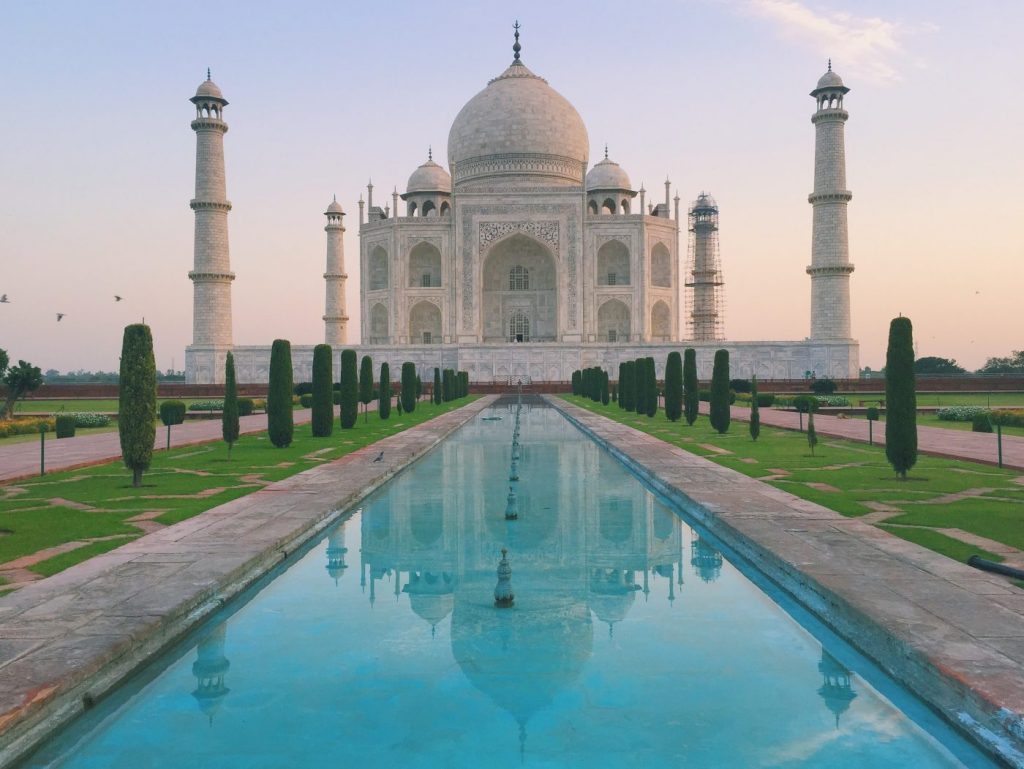
Table of contents
- Visiting the Taj Mahal in Agra, India:
- TAJ MAHAL HISTORY
- WHERE IS THE TAJ MAHAL?
- HOW TO GET TO THE TAJ MAHAL FROM DELHI TO AGRA?
- HOW LONG SHOULD YOU SPEND IN AGRA
- OTHER THINGS TO SEE IN AGRA
- HOW MUCH ARE TAJ MAHAL TICKETS
- TAJ MAHAL OPENING HOURS
- TAJ MAHAL TIPS
- PHOTO TIPS FOR THE TAJ MAHAL IN AGRA
- RESTAURANT WITH THE BEST VIEW OF THE TAJ MAHAL IN AGRA!
TAJ MAHAL HISTORY
Basically, a guy displaying an inordinate amount of love for his (favourite) wife. The city of Agra in India hosts one of the finest buildings and grandest mausoleums in the known World, the Taj Mahal. Built-in memory of Mumatz Mahal, the favorite wife of the then-Mughal emperor Shah Jahan in 1632,as her mausoleum. It took 20,000 staff (read: slaves) 22 years to build! This incredible building looks as good now as it ever has. The ornate, marble construction is built on a 42-acre complex and features a mosque and beautiful gardens. The Taj Mahal sees around 7 million visitors every year who can visit both inside and out of the great building.
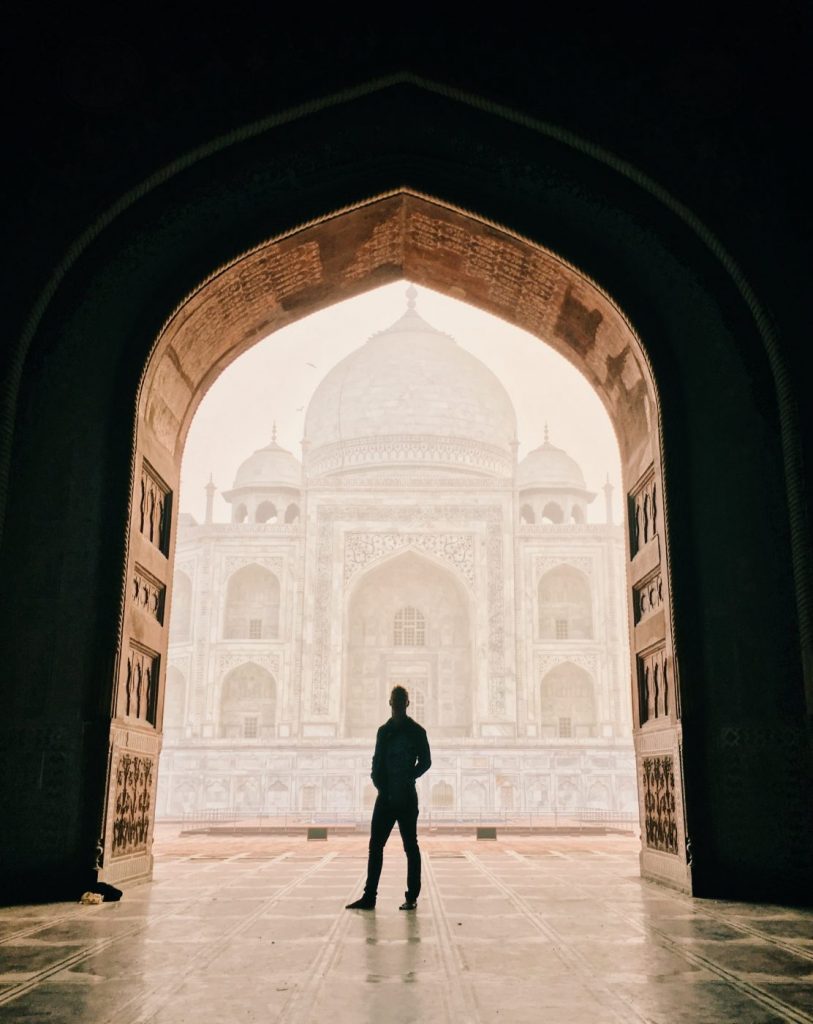
WHERE IS THE TAJ MAHAL?
The Taj Mahal is in a city called Agra, about 230km from the Capital City, New Delhi. It is possible to visit the Taj Mahal in Agra as a day trip from Delhi (many people do it), but I’d strongly suggest you go to Agra, spend the night there and explore the Taj the next day. I’ll explain more on that later.
The Google map below shows the distance and journey by train from Delhi to Agra…
HOW TO GET TO THE TAJ MAHAL FROM DELHI TO AGRA?
It’s super easy to get from Delhi to Agra. You have 3 main options:
A) Train:
There are 20+ trains from Delhi to Agra every single day, so no problems there! They vary from 2-5 hours, so aim for the following 4 trains. You can book online here, or go to any train station in India and book. There are a lot of Agra train stations, don’t panic – Agra Cantt is the main one, but Agra Fort is fine too. The prices are about 400rupees for AC trains ($6), 100 rupees for non-express, non-AC
You can also take trains to Agra from Jaipur, Mumbai, Chennai, Varanasi (that’s what I did, on a sleeper train).
12002 +BHOPAL SHTBDI NEW DELHI to AGRA CANTT 06:15 to 08:12 (01:57 duration)
12280 +TAJ EXPRESS H NIZAMUDDIN to AGRA CANTT 07:10 to 10:07 (02:57 duration)
14212 +INTERCITY EXP NEW DELHI to AGRA CANTT 17:40 to 21:50 (04:10 duration)
12191 +NDLS JBP SUP NEW DELHI to AGRA CANTT 14:05 to 17:10 (03:05 duration)

B) Bus
The first time I traveled in India I took the bus because it’s SUPER cheap, especially if you take the ‘ordinary bus’ with no AC etc (140 rupees/$3!). It takes 4-5 hours for a bus from Delhi to Agra. There are lots of stations you can get buses to Agra from Delhi and they run multiple times a day, in Delhi the Kashmiri gate bus stand is the station with the biggest, and most frequent buses to Delhi.
I’d only think about a bus from Delhi to Agra if you’re on a tight budget, the train is much better.
C) Private car/Taxi
The most recent time I traveled, I took a private car from Delhi to Agra. It’s not exactly a taxi as the Delhi taxis don’t have permission to take you to Agra (although some may do it!). You can find A LOT of companies online that offer the service though, it’ll be about $75ish, so you can split it between 4 and it’s super convenient, hotel to hotel, door to door!
HOW LONG SHOULD YOU SPEND IN AGRA
Lots of people day trip from Delhi, but I’d recommend you take the train and arrive at some point around lunch-time. From there I’d spend the rest of the day exploring Agra, its little markets and perhaps 1/2 of the sites (but not the Taj!).
The following morning, see the Taj Mahal, and Agra fort, along with all the other things to see in Agra. You may manage to see some of them the previous day.
For me then, I took a night train the following day, so I was in Agra for 2.5 days (2 nights) and it was a perfect amount of time in my opinion, but you could speed it up and do it in 1.5days if your time is tight.
OTHER THINGS TO SEE IN AGRA
Here’s all the stuff in Agra that I would definitely suggest you check out:
- The Taj obviously! Check out the best views and best places to take photos of the Taj Mahal here.
- Agra Fort – a must see in Agra, more impressive from the outside than inside, but worth a visit.
- Mehtab bagh – gorgeous public grouns but this is where you get those river shots of the Taj Mahal from the backside!
- Sikandra
- Itmad-Ud-Daulah’s Tomb (Baby Taj)
- Mariam’s Tomb
- Jama Masjid
- And if you have spare time, Fatehpur Sikri
TOP-TIP: One night, check out sunset beers overlooking the Taj Mahal from the restaurants I chat about later. It’s awesome if you do this on day 1 to get you excited!
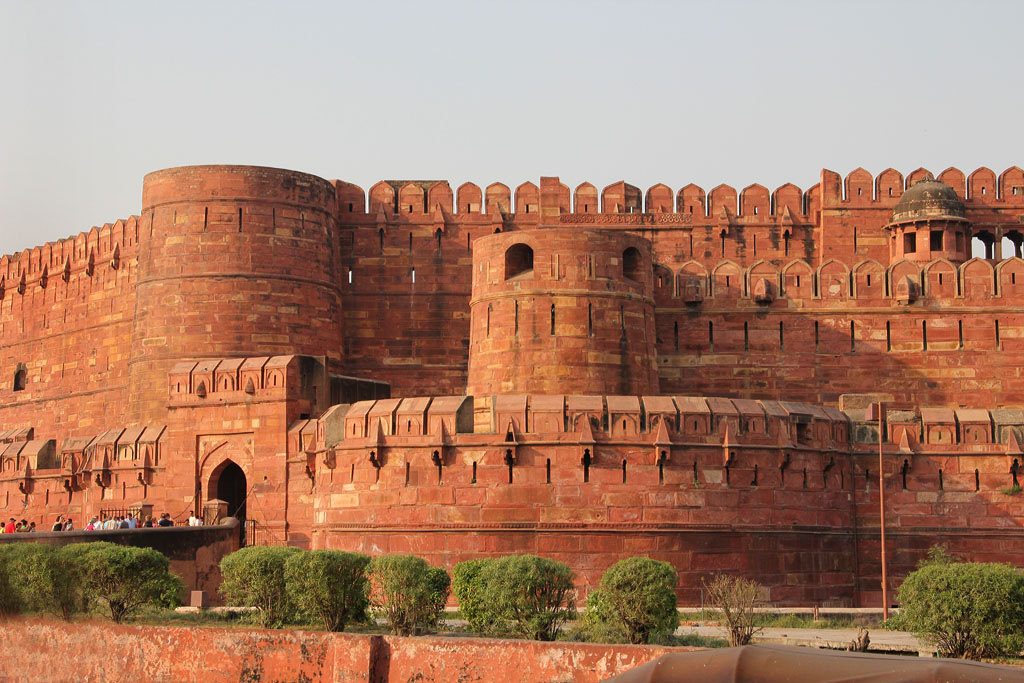
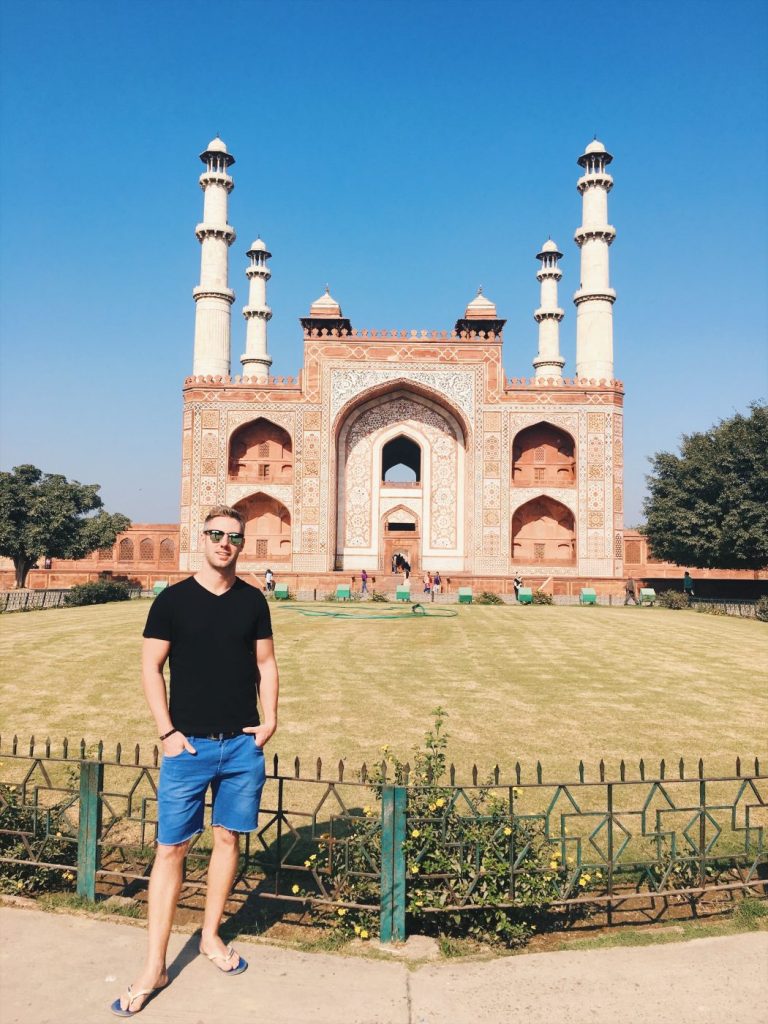
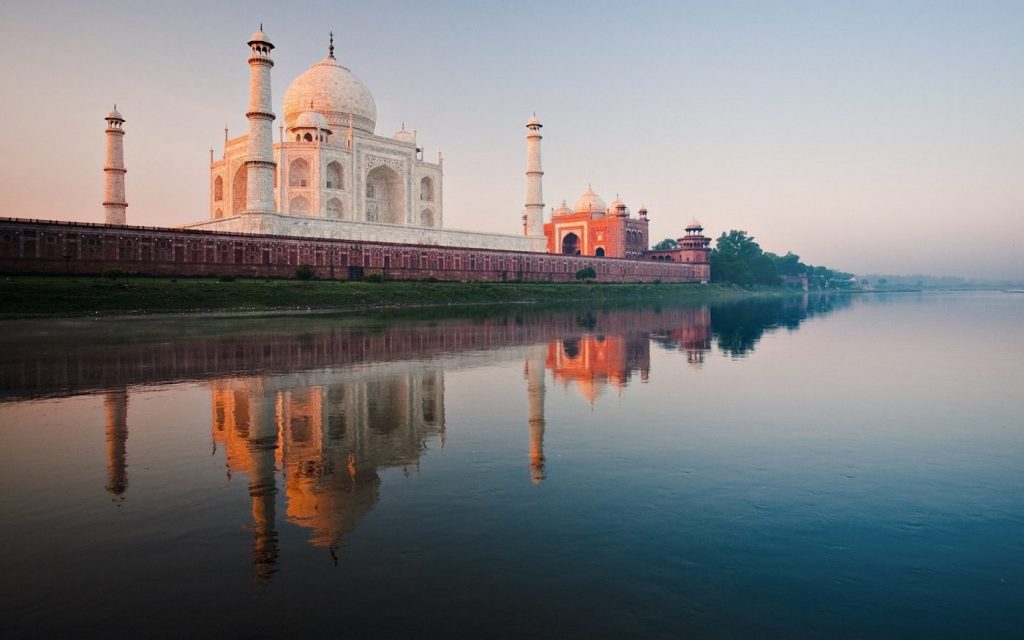
HOW MUCH ARE TAJ MAHAL TICKETS
Entry costs ₹1000 for foreigners ($16) and ₹20 for Indians ($0.30!). Buy the tickets at the Eastern or Western gate!
To buy tickets, you can go to the South gate, but this gate is 1 km far away of the entrance and the counter opens at 8:00 AM. At the West and East gates, the counters open at 6:00 AM. These gates also have smaller queues in peak times as the big tour buses drop groups off at the South gate. From the Eastern gate, you get your ticket and then walk about 700m.
TAJ MAHAL OPENING HOURS
The Taj Mahal in Agra is open from 6:00 AM to 6:30 PM (sunset) every day except Friday. The gates won’t open until 6:00 AM at the earliest, often a few minutes later, so don’t bother getting there at 5:00 AM necessarily, 5.30 is fine. I arrived around then for my crowd-free photo.

TAJ MAHAL TIPS
A) The most important tip is to get to the ticket office before 6am, I’d recommend being there, in the queue, around 5.30am. Get your ticket around 6am (bring your passport), then run to the gate to join the queue!
B) For me the ticket office opened at 6am, but the gate didn’t actually open until 7am, or 7.05am, but it was worth it to be in the queue and beat the crowds that arrive just an hour or so later.
C) Don’t bring a bag if you can avoid it, you have to leave everything at the locker, and that all takes time, so you’ll lose your first few minutes to yourself (camera, iPhone etc of course is ok).
NOTE: The Taj Mahal is closed every Friday.
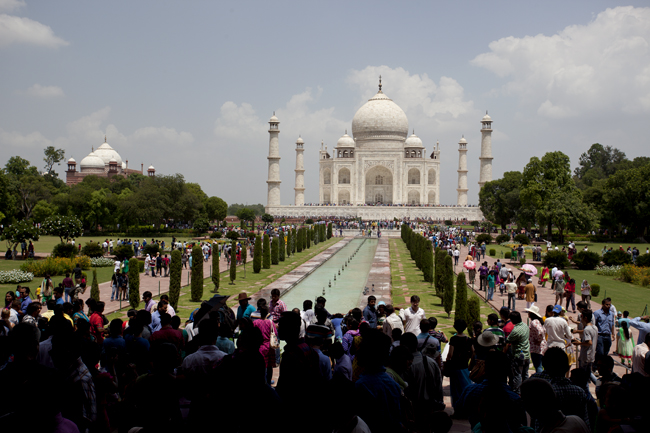
PHOTO TIPS FOR THE TAJ MAHAL IN AGRA
4 tips – that’s all, super easy!
A) Asssuming you listened to my advice, and you’re amongst the first 100 or so people in the door between 6am-7am in the morning, run through the gates and get your first look at the beautiful Taj. Don’t even bother taking photos where other people are though, run past them, to the first break in the central river/canal in from of the Taj. No one will be there yet, and you’ll have unobstructed views (and photos) of just you and the Taj!
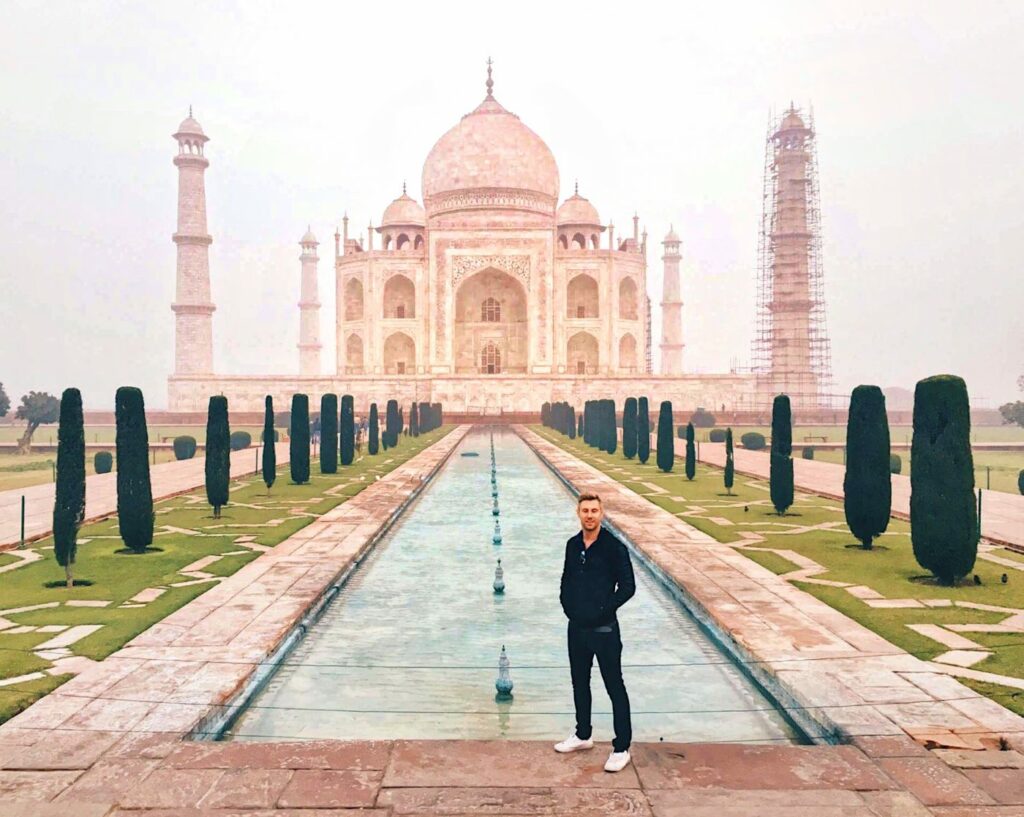
B) Don’t go straight into the Taj, on the west side there is a small Mosque. If you go directly there, no-one else will be there and you can have these sexy atmospheric shots again all to yourself!
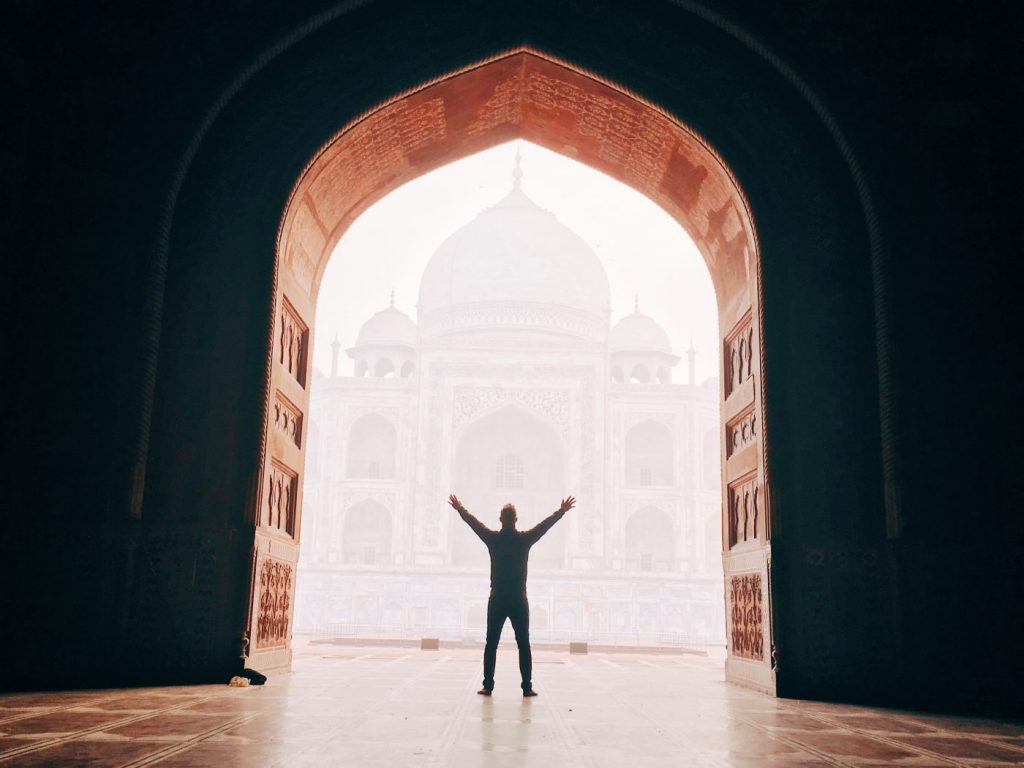
C) Explore the Taj and its ground, it’s mesmerizing. But at some point, after you’ve left the Taj, head to Mehtab bagh for stunning ‘back’ views of the Taj. If you can sneak up to the river, you can get some amazing shots that stand out from the generic Taj shots.

D) Finally, on the evening before you reach the Taj, head to Agra town to either Saniya Palace, or Hotel Kamal for your first glance of the Taj Mahal from a distance, and watch the sunset, spectacular. Ignore the price Oberoi hotel for cocktails, these places are much better!
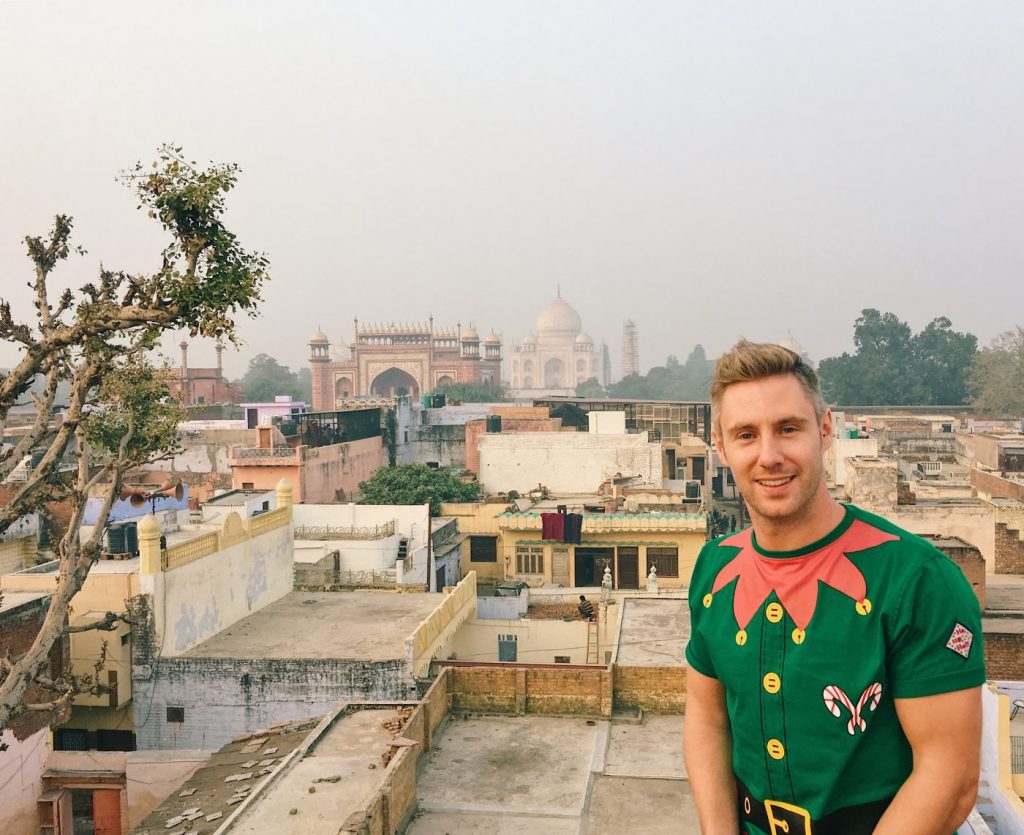
RESTAURANT WITH THE BEST VIEW OF THE TAJ MAHAL IN AGRA!
Either Saniya Palace, or Hotel Kamal. One is better food, better menu but busier, and one is rough and ready but quiet, you may be the only person there!
Check out the AMAZING views from the little local Indian rooftop bar in the short video here…
Read my blog post on the best restaurant with Taj Mahal views here and choose yourself!
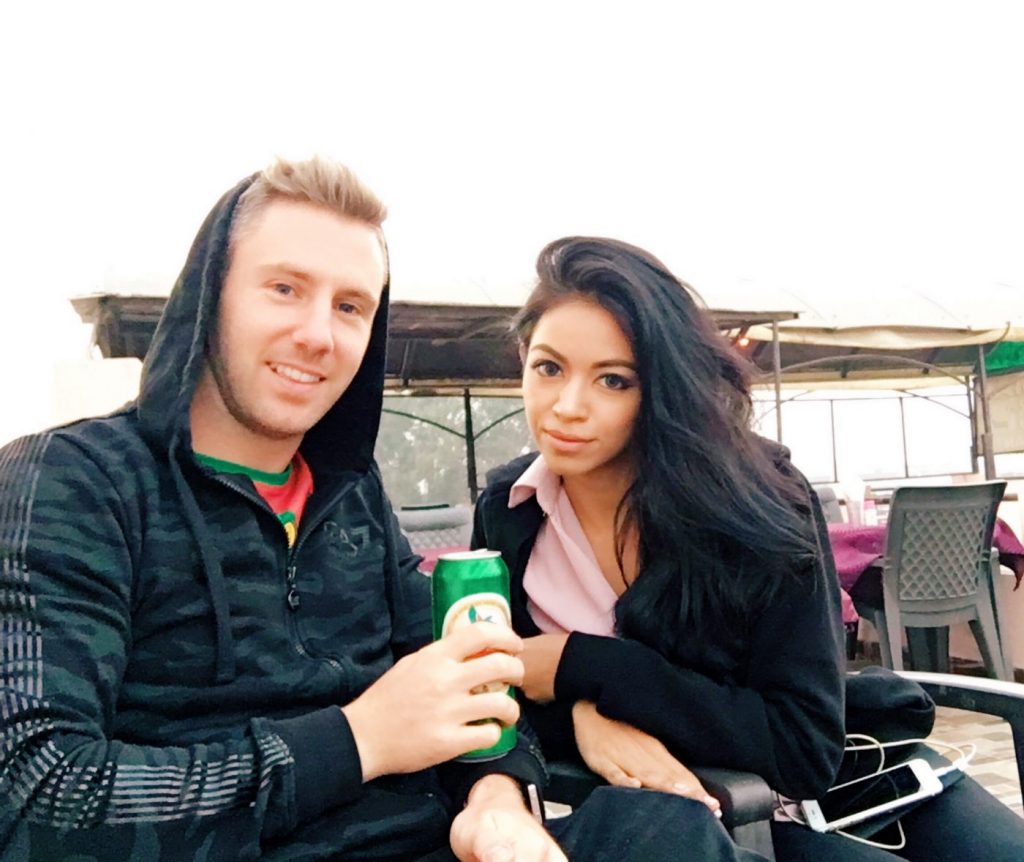
Remember, never travel without travel insurance! And never overpay for travel insurance!
I use HeyMondo. You get INSTANT quotes. Super cheap, they actually pay out, AND they cover almost everywhere, where most insurance companies don't (even places like Central African Republic etc!). You can sign-up here. PS You even get 5% off if you use MY LINK! You can even sign up if you're already overseas and traveling, pretty cool.
Also, if you want to start a blog...I CAN HELP YOU!
Also, if you want to start a blog, and start to change your life, I'd love to help you! Email me on johnny@onestep4ward.com. In the meantime, check out my super easy blog post on how to start a travel blog in under 30 minutes, here! And if you just want to get cracking, use BlueHost at a discount, through me.
Also, (if you're like me, and awful with tech-stuff) email me and my team can get a blog up and running for you, designed and everything, for $699 - email johnny@onestep4ward.com to get started.
Do you work remotely? Are you a digital nomad/blogger etc? You need to be insured too.
I use SafetyWing for my digital nomad insurance. It covers me while I live overseas. It's just $10 a week, and it's amazing! No upfront fees, you just pay week by week, and you can sign up just for a week if you want, then switch it off and on whenever. You can read my review here, and you can sign-up here!





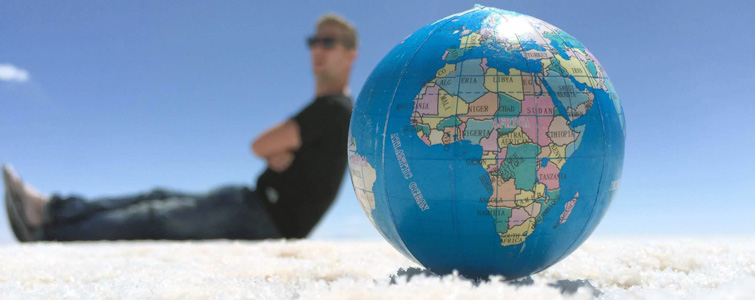


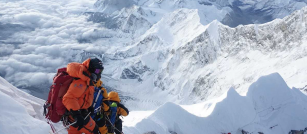




 As you know, blogging changed my life. I left Ireland broke, with no plan, with just a one-way ticket to Thailand
and no money. Since then, I started a blog, then a digital media company, I've made
more than $1,500,000 USD, bought 4 properties and visited (almost) every country in the world. And I did it all from my laptop as I
travel the world and live my dream. I talk about how I did it, and how you can do it too, in my COMPLETELY FREE
Ebook, all 20,000
words or so. Just finish the process by putting in your email below and I'll mail it right out to you immediately. No spam ever too, I promise!
As you know, blogging changed my life. I left Ireland broke, with no plan, with just a one-way ticket to Thailand
and no money. Since then, I started a blog, then a digital media company, I've made
more than $1,500,000 USD, bought 4 properties and visited (almost) every country in the world. And I did it all from my laptop as I
travel the world and live my dream. I talk about how I did it, and how you can do it too, in my COMPLETELY FREE
Ebook, all 20,000
words or so. Just finish the process by putting in your email below and I'll mail it right out to you immediately. No spam ever too, I promise!
